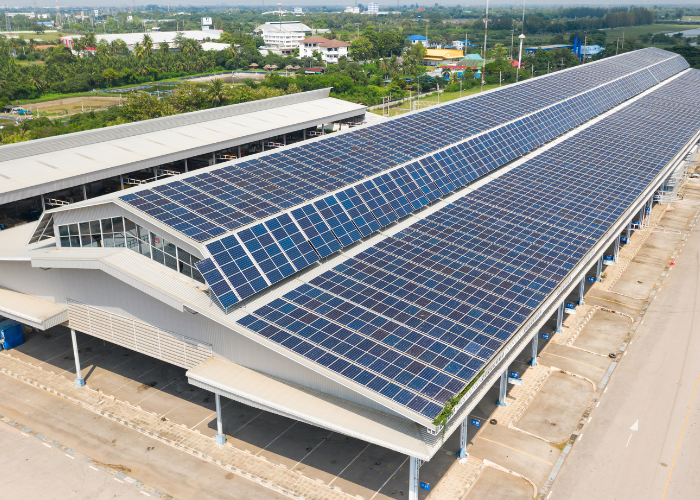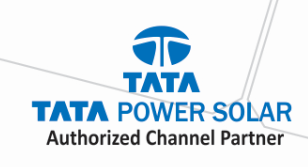
Solar power for commercial and industrial
Solar power for commercial and industrial purposes involves using solar energy systems to meet the energy needs of businesses, factories, offices, warehouses, and other non-residential properties.
Commercial and industrial solar installations are typically larger in scale compared to residential systems. They can range from relatively small installations on office buildings to vast solar arrays covering large industrial rooftops or ground-mounted installations on commercial properties.
Just like residential installations, commercial and industrial solar systems can significantly reduce electricity bills over time. By generating their electricity, businesses can stabilize or reduce their operational costs, providing a good return on investment.
Various government incentives, tax credits, grants, and rebates are often available for commercial and industrial solar installations. These incentives can significantly reduce the upfront costs and improve the financial viability of the project.
Some commercial and industrial entities may choose to enter into PPAs with solar providers. This agreement allows businesses to buy solar power from the provider at a predetermined rate without the upfront costs of owning and maintaining the solar panels.
Many businesses prioritize sustainability and demonstrate their commitment to reducing carbon footprints by investing in renewable energy sources like solar power. It enhances their corporate social responsibility and may positively impact their brand image.
Solar installations for commercial and industrial purposes require careful planning, engineering, and often customized solutions. Factors such as available space, roof condition, energy needs, and regulatory compliance must be thoroughly evaluated.
Solar panels typically have long lifespans (often 25 years or more) and require minimal maintenance, providing a consistent and reliable source of renewable energy for decades.
Many commercial solar installations are grid-tied, meaning they remain connected to the utility grid. Some may incorporate energy storage solutions like batteries to store excess energy for use during periods of high demand or when sunlight is not available.
Implementing solar power in commercial and industrial settings offers various advantages, including cost savings, environmental benefits, and a positive corporate image. Consulting with solar energy professionals and conducting a feasibility study specific to the business's needs is crucial before proceeding with a commercial or industrial solar installation.

